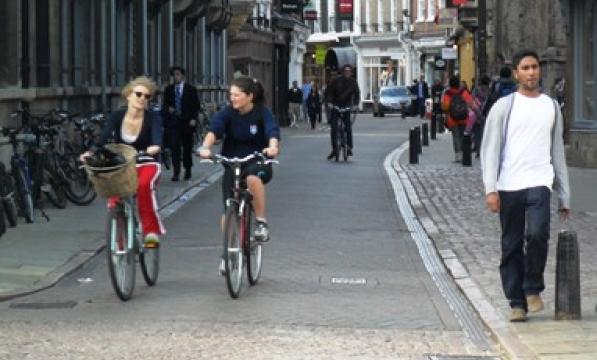Tragic case of schoolboy doesn't show need for mandatory helmets

Understandably, Ryan's father is distraught at his son's terrible injuries. He is urging other cyclists to wear helmets.
However, even if helmets could make a difference in some cases, CTC believes that making them compulsory would do far more harm than good.
This is because the health benefits of cycling far outweigh the risks - by about 20:1 - and the evidence is strong that forcing people to wear helmets means that many simply stop riding their bikes.
CTC also believes we should focus attention more on reducing the risk of a crash taking place, rather than seeking to reduce injuries in the aftermath - this is more important at a time when the number of injuries to cyclists is rising fast.
In Ryan Smith's case, even if a helmet may have made his injuries less severe, the focus should be on the circumstances of the crash: what did the van driver do? Would lower speed limits or better cycle infrastructure have made a difference?
My heart goes out to Ryan Smith and his family. What they are going through now must be unimaginable. However, faced with heart-rending stories like this, decision-makers need to remember that the only known impact of helmet laws is to drastically reduce cycle use, typically by over 30%, with much deeper reductions for teenage cycling.
Roger Geffen
CTC Campaigns Director
Why forcing people to wear helmets doesn't work
CTC's position on helmets is derived from an analysis of the evidence of the effect of similar legislation where it is enforced elsewhere in the world.
In Australia, the enforcement of cycle helmet laws there in the 1990s led to an immediate drop in cycle use - particularly amongst children - of around 30%.
From this it can be shown that, even if cycle helmets could prevent every possible head injury, telling cyclists to wear them would still shorten more lives than helmets themselves could possibly save, if this caused as little as a 2-3% reduction in cycle use. You are about as unlikely to be killed in a mile of cycling as a mile of walking.
In other words, serious and fatal cycling injuries are mercifully rare enough that you'd do far more harm than good by telling cyclists to wear helmets - let alone forcing them to do so by law - even if this led to just a tiny fall in the numbers of people cycling.
In addition, we already have many road traffic laws that are poorly enforced - adding to the legislative burden on cyclists, while failing to address the huge amount of speeding, hand-held mobile phone use and inconsiderate and dangerous driving that occurs amongst drivers - is iniquitous.
Comparing Britain to the Netherlands
Countries like the Netherlands have far higher cycle use and far better cyclist safety than in Britain, yet helmet-use there is almost unheard of other than for sports cyclists. The Dutch have rightly decided that cycling's health and other benefits can best be maximised by designing and regulating the road network to prevent collisions from occurring in the first place, rather than by placing faith on helmets to mitigate their impacts when they occur.
That of course is not an easy argument to make when faced with emotive tragedies such as that of Ryan Smith and his family. Yet it is still the right one. Faced with the twin crises of obesity and climate change, the last thing we should be doing is forcing young people into increasingly car-dependent sedentary lifestyles.

